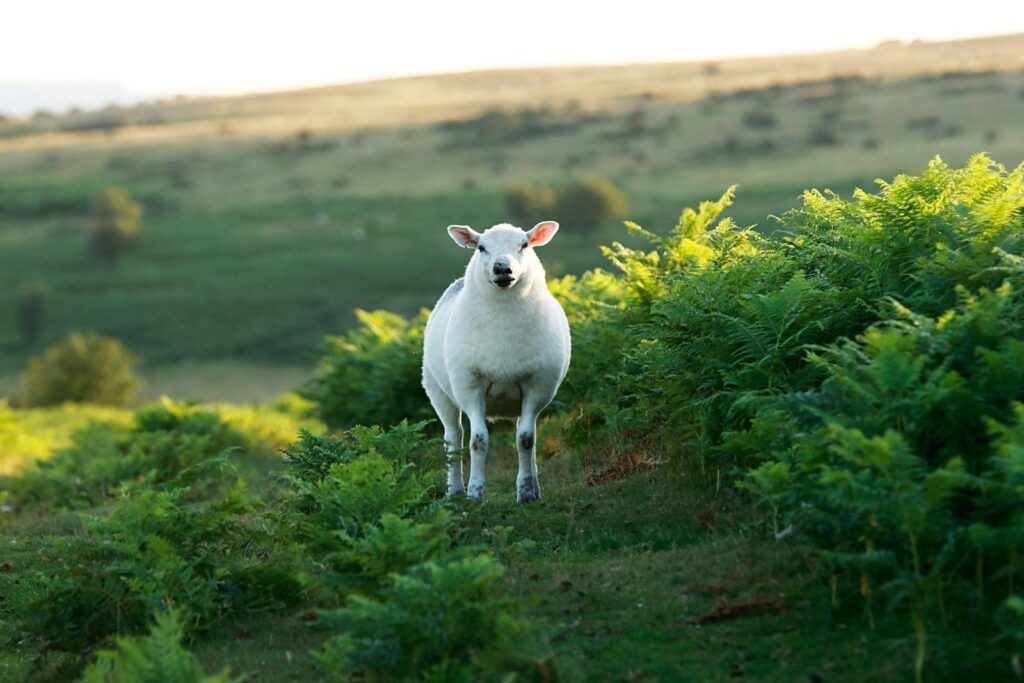Farmer pleads for urgent approval of bracken control herbicide in Scotland
12th June 2023
Hill farmer and NFU Scotland member Brian Walker is calling on the Scottish Government to urgently grant emergency authorisation for the bracken control herbicide Asulam to protect upland farmers and crofters and safeguard public health.
Mr Walker, who farms 80 suckler cows and 950 breeding ewes on 2,500 acres of hill ground near Inveraray in Argyll, said the negative impacts of not controlling bracken far outweigh those of using a herbicide to control it, and failure to provide authorisation would be “a dereliction of duty to protect farmers, crofters, the rural workforce, and public health.”
He pointed out that bracken makes for a perfect breeding ground for ticks, which can overwinter in the dead plant material and cause various health issues to livestock, leading to the use of more chemicals to prevent serious illness.
“Redwater disease in cattle and louping ill in sheep are nasty diseases. So, it is ironic that to protect our animals, we would have to use chemicals on them, rather than control the problem at the source by removing bracken,” he said.
Allowing bracken to grow out of control also poses a threat to public health, Mr Walker continued, as the plant is a known carcinogenic with reports warning of spores entering watercourses.
“In Inveraray, tourists used to wander round the town and the castle, but now, we have more people coming up to the estate and going into wilder hill ground where they are coming into contact with bracken. This could also have a major impact on human health.
“There has already been a reported increase in Lyme disease this year as well as confirmed cases of tick-borne encephalitis in the UK – a virus which can cause swelling of the brain,” he added.
According to reports, there has been a dramatic increase in the number of ticks harbouring infection over the last 20 years, with figures showing a rise from 0.01% to 20% of the population. A lack of government approval for using Asulam to eliminate key tick habitats will cause the parasites to multiply further and exacerbate the problem, Mr Walker stressed.
Other than being an aggressive and invasive weed, he said bracken often grows on steep hilly terrain, making it near impossible to control the weed mechanically. “Much of the bracken on my land is on steep terrain, difficult if not downright dangerous to reach on foot.
“We have tried other methods of controlling bracken on smaller, flatter areas. But these methods aren’t effective, the bracken keeps coming back,” Mr Walker remarked.
As aerial contractors only have a short window to spray the bracken and getting hold of chemicals from overseas can take up to six weeks, Mr Walker reiterated the vital importance of prompt action from the government to approve emergency authorisation for Asulam.
The delay in making the decision last year has already caused less bracken to be sprayed in 2022, making the weed harder to control in future years. “Controlling bracken is something you need to keep on top of, not do once and then think it’s all fine,” he pointed out.
“Where bracken grows, the land is unproductive. We can’t work it or get an income from it. Nothing else grows there, so there’s no biodiversity or climate benefits either. It’s a monoculture of weeds. The only way to control this insidious plant is to aerial spray with Asulam.
“That is the only way we can continue to produce food from our hillsides, keep our animals and the public safe, and sustain the rural economy,” Mr Walker concluded.

